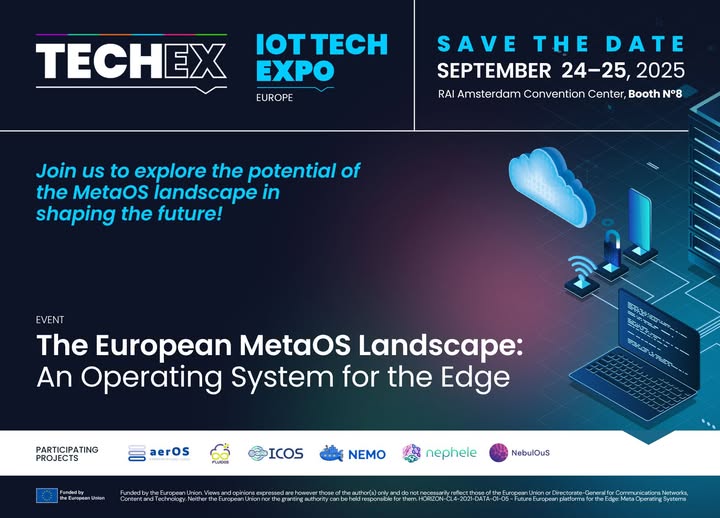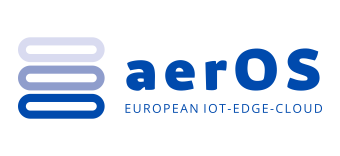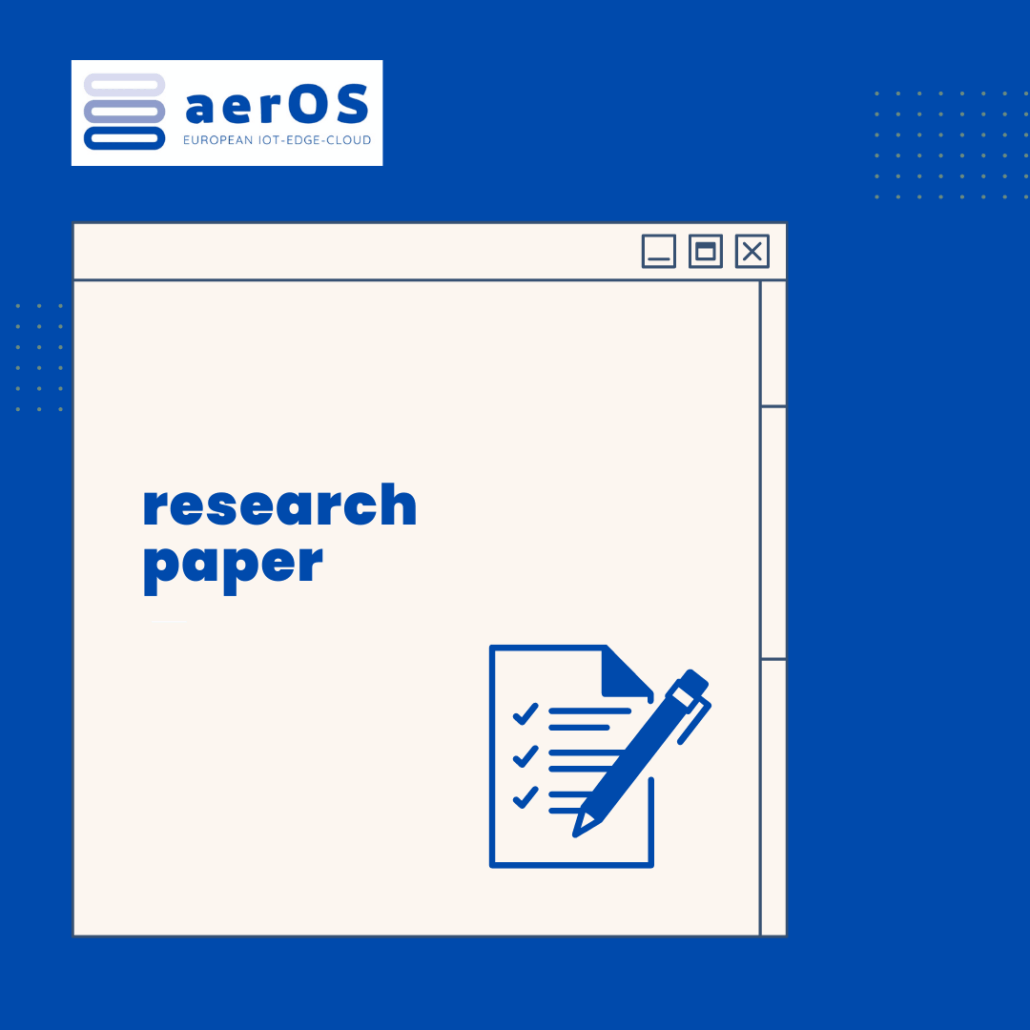aerOS Project to Showcase Cutting-Edge Edge–Cloud Innovation at IoT Tech Expo Europe 2025
aerOS project is excited to announce its participation in the IoT Tech Expo Europe 2025, taking place on September 24–25 at RAI Amsterdam, Netherlands. As one of Europe’s flagship events for IoT and emerging technologies, the expo will gather over 7,000 industry professionals, 200+ expert speakers, and 200+ exhibitors, covering key topics such as IoT, AI, edge computing, cybersecurity, and more.
At this year’s event, aerOS will be featured among leading European innovators and EU-funded cluster projects, presenting its visionary work on a meta-operating system designed to enable secure, flexible, and vendor-neutral orchestration of computing resources across the edge–cloud continuum. The project’s ambition is to simplify distributed computing while fostering data autonomy and interoperability across diverse environments and sectors.
Visitors to the metaOS booth will experience live demonstrations, technical deep-dives, and interactive sessions that bring the project’s goals to life. Key use cases from the project’s pilot sites—including smart manufacturing, precision agriculture, renewable energy, smart ports, and intelligent buildings—will be showcased, offering attendees a firsthand look at how aerOS is driving digital transformation and enabling AI at the edge.
By participating in IoT Tech Expo Europe, aerOS strengthens its role in shaping the future of European digital infrastructure and contributing to a resilient, scalable, and open-edge ecosystem.
Learn more and register here: https://www.iottechexpo.com/




